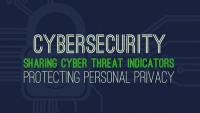-
More Americans support Justice Dept. than Apple in locked iPhone dispute
As the standoff between the Department of Justice and Apple Inc. continues over an iPhone used by one of the suspects in the San Bernardino terrorist attacks, 51 percent say Apple should unlock the iPhone to assist the ongoing FBI investigation. Fewer Americans (38 percent) say Apple should not unlock the phone to ensure the security of its other users’ information; 11 percent do not offer an opinion on the question.
-
-
Passwords, privacy and protection: can Apple meet FBI’s demand without creating a ‘backdoor’?
The point of encryption is to make decryption hard. However, hard does not mean impossible. The FBI could decrypt this data, with sufficient effort and computational power, and they could do this with no help from Apple. However, this route would be expensive, and would take some time. In effect, what they’re requesting of Apple is to make their job easier, cheaper and faster. Ultimately, how this matter gets resolved may depend more on the big-picture question of what privacy rights we as a society want for the data we record on our personal devices. Understanding the technical questions can inform this discussion.
-
-
Snowden ready to return to U.S. for “fair trial”
Edward Snowden has told friends and supporters he was ready to return to the United States if he could be guaranteed a fair trial. Snowden said his representatives had approached the U.S. Justice Department in an effort to negotiate a plea deal, even one involving him spending time in jail. He told the BBC Panorama last year, however, that the Justice Department had made no effort to respond.
-
-
NYPD has used Stingrays since 2008 -- with lower-level court orders rather than warrants
The NYPD has confirmed that it owns and operates Stingrays— surveillance devices that spy on cell phones nearby and which can be used to track location. In response to an NYCLU FOIL request, the NYPD disclosed it used Stingrays nearly 1,016 times between 2008 and May of 2015 without a written policy and following a practice of obtaining only lower-level court orders rather than warrants. This is the first time the extent of the use of Stingrays by the NYPD has been made public.
-
-
Intelligence agencies could use Internet-of-things to spy on people

James Clapper, the director of U.S. national intelligence, told lawmakers the other day that the Internet of things — baby monitors, TV set, home security devices, voice recognition dolls – may be used by intelligence services to spy on people. Clapper, testifying yesterday before a Senate panel, said that intelligence agencies might be able to use this new generation of household devices to increase their surveillance capabilities.
-
-
Brennan Center sues DHS, DOJ to make “Countering Violent Extremism” records public

The Brennan Center for Justice at NYU School of Law last week sued DHS and the Department of Justice under the Freedom of Information Act (FOIA) for records pertaining to an inter-agency initiative known as “Countering Violent Extremism” (CVE). The CVE initiative is designed to identify and preempt Americans from becoming involved in “violent extremism” and is being implemented in Muslim communities in several parts of the country, including the three formally designated pilot cities of Los Angeles, Boston, and Minneapolis-St. Paul.
-
-
Canada’s intelligence agency halts intelligence sharing with international partners
Canada’s Communications Security Establishment (CSE), the country electronic signals intelligence agency, said it has stopped sharing intelligence with several close international partners after disclosing it had illegally collected the communication metadata of Canadian citizens in the process of eavesdropping on foreign communications. In a report to parliament last Thursday, CSE said the breach was unintentional, and that it had been discovered internally in 2013.
-
-
New York City settles Muslim surveillance lawsuits

The NYPD has been agreed not to conduct surveillance based on religion, race, and ethnicity after charges that it had illegally monitoring Muslims in New York City. The city has agreed to settle two civil rights lawsuits for illegally monitoring its Muslim community following the September 11 attacks. As part of the settlement, in which the city does not admit to any wrongdoings, the city will appoint a civilian to monitor the NYPD’s counterterrorism unit.
-
-
Majority of Americans believe it is sometimes necessary for govt. to sacrifice freedoms
Survey conducted after the Paris and San Bernardino attacks finds a majority of respondents from both parties think it is acceptable for the government to analyze the Internet activities and communications of American citizens without a warrant.
-
-
NSA kept Benjamin Netanyahu under surveillance during Iran negotiations

As part of the effort by the Obama administration earlier this year to make sure that the negotiations between the P5+1 powers and Iran over the latter’s nuclear program would not be derailed or obstructed, the National Security Agency (NSA) kept a close watch on Israel’s prime minister Benjamin Netanyahu. The agency collected intelligence on Netanyahu and other Israeli leaders in an attempt to learn what moves the Israeli leader was planning as part of his campaign to have Congress reject the agreement the United States was negotiating.
-
-
Terrorists used encrypted apps to plan, coordinate Paris attacks
The leaders of U.S. and European law enforcement and intelligence agencies have been explicit in their warnings: commercially available communication devices equipped with end-to-end encryption software make it impossible for security services to track terrorists plotting an attack – or monitor the terrorists’ communication while the attack is under way. Sources close to the investigation of the 13 November Paris terrorist attacks have now confirmed that the terrorists used the encrypted WhatsApp and Telegram messengers apps to communicate for a period before the attacks – and with each other during the attacks. What was said in those encrypted messages, and who sent and received these messages, may never be known, because the companies themselves do not have the key – or back door – to decrypt these messages. Thus, security services could not monitor such messages before an attack in order to prevent it, and cannot read these message after an attack to learn more about the terrorists’ network and support system.
-
-
FBI unable to break 109 encrypted messages Texas terror attack suspect sent ahead of attack

FBI director James Comey told lawmakers this week that one of the suspects in the foiled terror attack in Garland, Texas, in May had exchanged 109 messages with sources in a “terrorist location” overseas ahead of the attack. U.S. intelligence and law enforcement agencies, however, have not been able to break into and read those messages because they were exchanged on devices equipped with end-to-end encryption software which, security services in the United States and Europe argue, make it impossible to monitor and track terrorists and criminals.
-
-
Civil liberties coalition condemns cybersecurity bill

Civil libertarians in the United States have a new ally in the fight against the new surveillance bill now being considered in Congress: librarians. The critics of the bill call it both “unhelpful” and “dangerous to Americans’ civil liberties.” House speaker Paul Ryan (R-Wisconsin) has been actively pushing for reconciliation of two bills, the Protecting Cyber Networks Act (PCNA) and the National Cybersecurity Protection Advancement with the Cybersecurity Information Sharing Act of 2015 (CISA), which passed a Senate vote in October.
-
-
Paris attacks expose weaknesses in Europe’s security structure

The 13 November attacks in Paris offered a painful demonstration of Europe’s security loopholes which the terrorists exploited to their advantage. The attacks should serve as a wake-up call to Europeans that the continental security structure, built in another era, is no longer sufficient and needs to be adapted to new circumstances. Whether or not such adaptations can be made, and made in time before the terrorists decide to launch another attack, is an open question.
-
-
Large-scale face-search technology helps in fighting crime, terrorism

The rapid growth in surveillance cameras is resulting in millions of face images and videos captured every day. The ability quickly and accurately to search all these images to assist in identifying criminal and terrorism suspects is an important and complex task that can contribute to making communities safer. To help in this effort, MSU has licensed its large-scale, automatic face-search system to NEC Corp.
-
- All
- Regional
- Water
- Biometrics
- Borders/Immig
- Business
- Cybersecurity
- Detection
- Disasters
- Government
- Infrastructure
- International
- Public health
- Public Safety
- Communication interoperabillity
- Emergency services
- Emergency medical services
- Fire
- First response
- IEDs
- Law Enforcement
- Law Enforcement Technology
- Military technology
- Nonlethal weapons
- Nuclear weapons
- Personal protection equipment
- Police
- Notification /alert systems
- Situational awareness
- Weapons systems
- Sci-Tech
- Sector Reports
- Surveillance
- Transportation
Advertising & Marketing: advertise@newswirepubs.com
Editorial: editor@newswirepubs.com
General: info@newswirepubs.com
2010-2011 © News Wire Publications, LLC News Wire Publications, LLC
220 Old Country Road | Suite 200 | Mineola | New York | 11501
Permissions and Policies
Editorial: editor@newswirepubs.com
General: info@newswirepubs.com
2010-2011 © News Wire Publications, LLC News Wire Publications, LLC
220 Old Country Road | Suite 200 | Mineola | New York | 11501
Permissions and Policies
